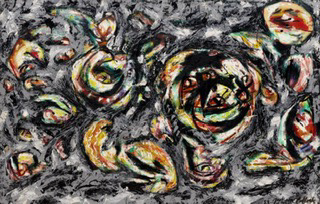-
Posts
5,707 -
Joined
-
Last visited
About Theregulars
- Currently Viewing Topic: NUFC Transfer Rumours
-
Charnley communicative? Pull the other one
-
Ultimately I think and hope you are right. I accept that they may be waiting for prices to come down, but I also accept the clock ticks each day
-
I’m not sure the comparison works, it’s too simple. The club has had a long time to identify targets and to do the research necessary to consider whether they’d be interested in joining and at what wages, and it has been open to the club to ask agents about asking prices. As soon as an expensive target (apple) is off the table, you move to the next one. You don’t really need that degree of research, discussion and strategy about your apples. You also don’t buy apples to complement the pre-existing set of apples you already have at home, you normally buy them because you want / need new apples. Im ok with price haggling at this stage but my concern is that it continues so far into pre season that we’re deprived of the impact of new players in the squad because it takes Howe a while to trust and involve new players. It doesn’t help that we’re seeing a second consecutive summer of boardroom uncertainty and confusion as to who is in charge of getting players through the door. Coupled with what seems to me to be a bit of drift (eales still in post, Mitchell still in post where doesn’t appear to be a reason for it, no replacements for star key and ghodoussi) at boardroom level and there’s plenty room for chin scratching now.
-
I think people's point is that surely we now have PSR headroom?! We've been inactive for 2 years. We have been told by Eddie that we have PSR headroom. The squad is badly under-prepared for the campaign ahead, and the campaign starts on July 7th.
-
I think Isak is quite rightly exercising some leverage to get the club to sign players. It’s totally in our gift to show him we’re seriously ambitious
-
He was good enough for it in the season just gone, although I do agree we need another…
-
Orange numbers would make it great, but will be white I imagine. Otherwise looks crapper than original.
-
Wonder what Shefki Kuqi is up to
-
Perhaps different players just have different priorities, circumstances and opportunities that align at different times.
-
But literally everyone wearing or seeing it would (and does) know better
-
Quite like it, simple but effective. That in long sleeve will do me nicely.
-
I don’t really think most journalists are journalists these days, no. I don’t think what I said constitutes endorsement of the standard of his information-sharing, and yeh I’d rather he provided concrete information or wrote interesting opinion things. But watching him poke fun at people scrabbling about for minute-by-minute transfer updates like crackheads rustling through a bin is quite funny, because he’s taking the piss out of their eminently pisstake-worthy behaviour. If you actually get riled up or offended by a regional football writer not giving you the hit you crave then you’ve bigger problems than Luke Edwards, in my view.
-
Think it’s quite funny to see him on the wind-up, and as set out above think he’s genuinely emotionally invested in Newcastle and wants the best for it. Once you adjust to the reality that none of them really have full or accurate information, the club knowingly and deliberately use them and that their career viability depends on how many clicks and views they can garner, it’s quite funny to watch someone openly bait people and for them to fall for it every time. Not to say he’s not embarrassed himself or seemed to have mislead people on occasion, his guehi stuff last summer was not helpful.


